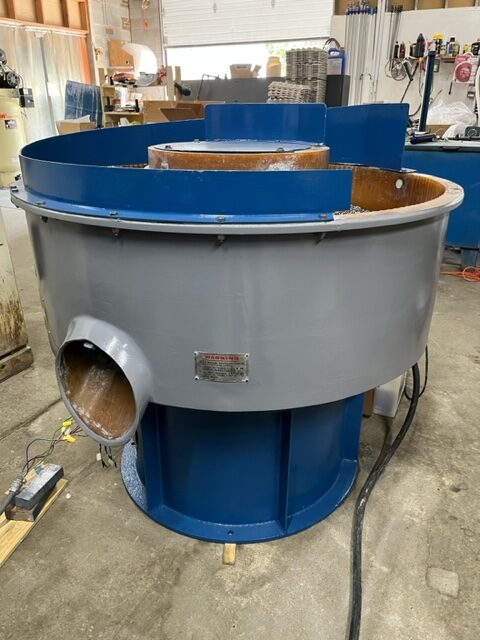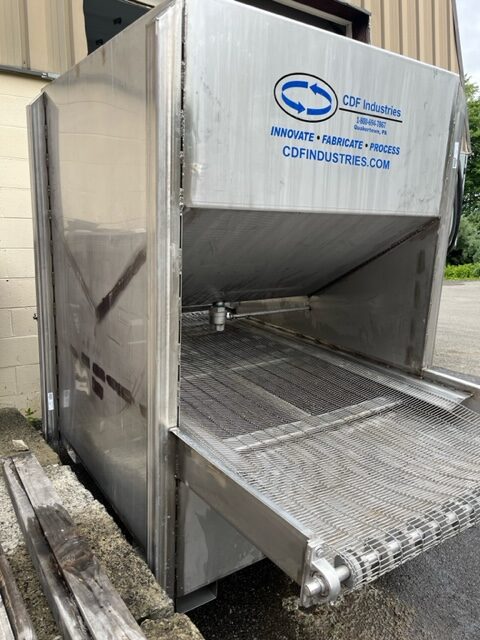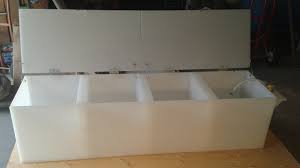
Why Should I Buy a Used Vibratory Finishing Mill?
June 27, 2023
Using Aqueous Parts Washers to Remove Cutting Fluids
July 5, 2023Flocculating vibratory tumbling waste water, which involves adding flocculants to the water during the tumbling process, offers several benefits. Here are some of the advantages:
- Improved settling: Flocculants promote the aggregation of fine particles and suspended solids in the wastewater, forming larger and heavier flocs. These flocs settle more easily, allowing for improved separation and removal of solid waste from the water. This leads to enhanced water clarity and reduced turbidity.
- Increased efficiency: By using flocculants in the tumbling process, the settling time can be significantly reduced. The flocculated particles settle faster, enabling quicker water drainage and shorter processing cycles. This increased efficiency translates to higher throughput and reduced overall processing time.
- Enhanced water quality: Flocculating vibratory tumbling waste water helps in the removal of various contaminants such as dirt, oils, greases, and other impurities. The flocculants bind to these particles, allowing for effective filtration or sedimentation, leading to cleaner water. This can be particularly beneficial for industries that need to meet strict environmental regulations.
- Cost savings: Improved settling and enhanced filtration efficiency result in reduced water consumption and lower disposal costs. Flocculation helps to concentrate the waste solids, reducing the volume of waste water generated. Consequently, less water needs to be treated or disposed of, leading to cost savings associated with water usage and waste management.
- Reusability: When flocculation is employed, the separated solids can often be collected and recycled or reused in various applications. For example, in certain industries, the recovered solids may be used as raw materials or for energy generation. This not only reduces waste but also provides potential cost-saving opportunities.
- Environmental benefits: By effectively treating and clarifying waste water, flocculation helps to minimize the environmental impact of industrial processes. It reduces the release of contaminants into water bodies, helping to preserve the quality of natural water resources and protect aquatic ecosystems.
It’s important to note that the specific benefits may vary depending on the application, the type of waste water, and the flocculants used. The dosage and selection of flocculants should be optimized based on the characteristics of the waste water to achieve the desired results.




